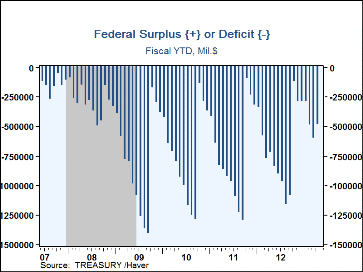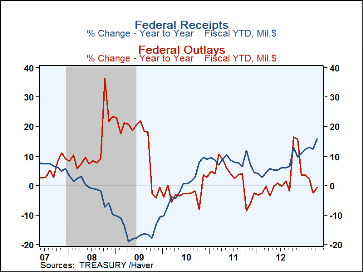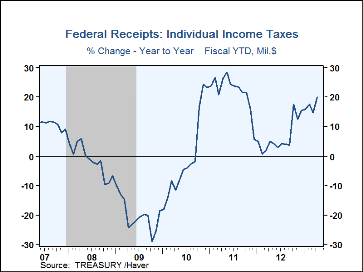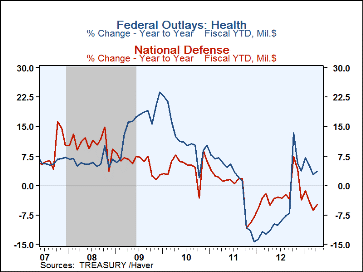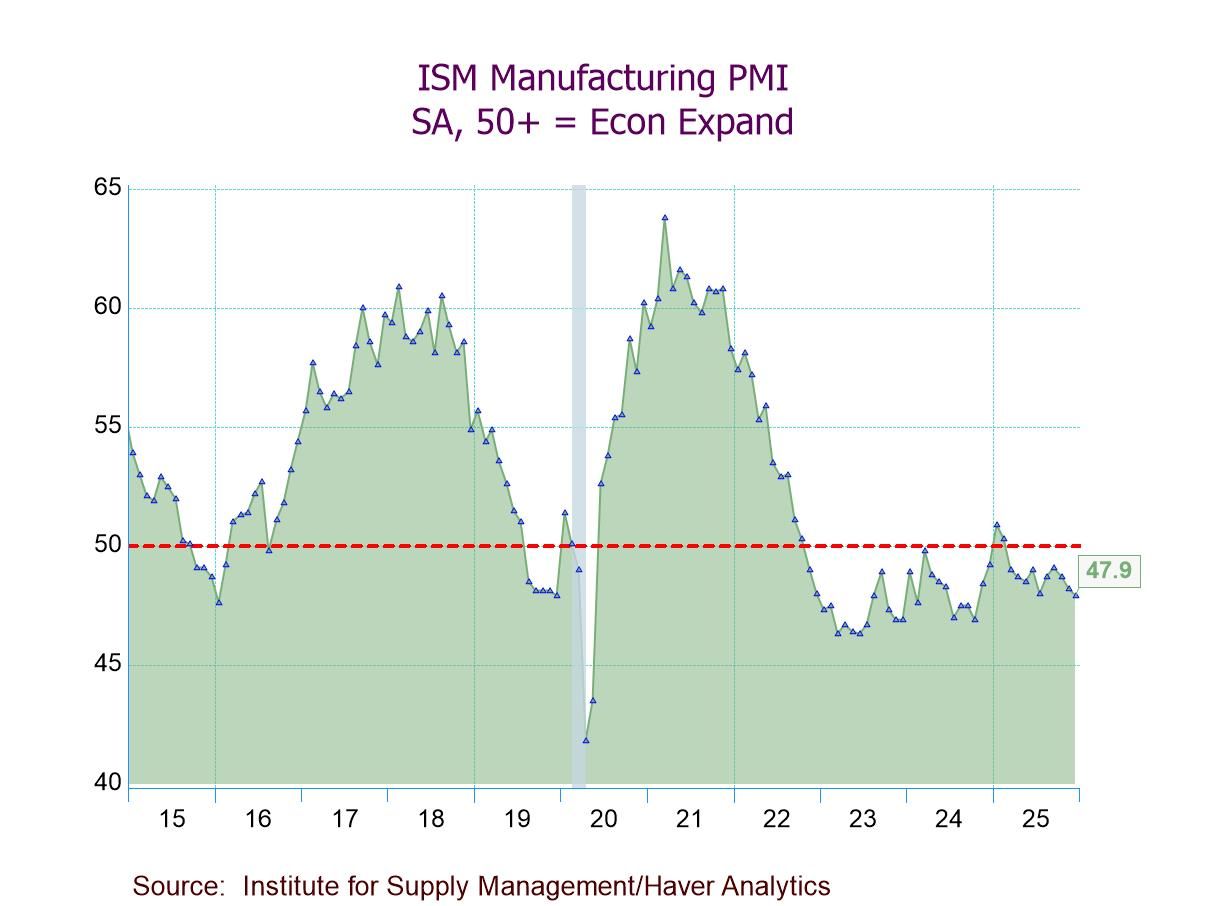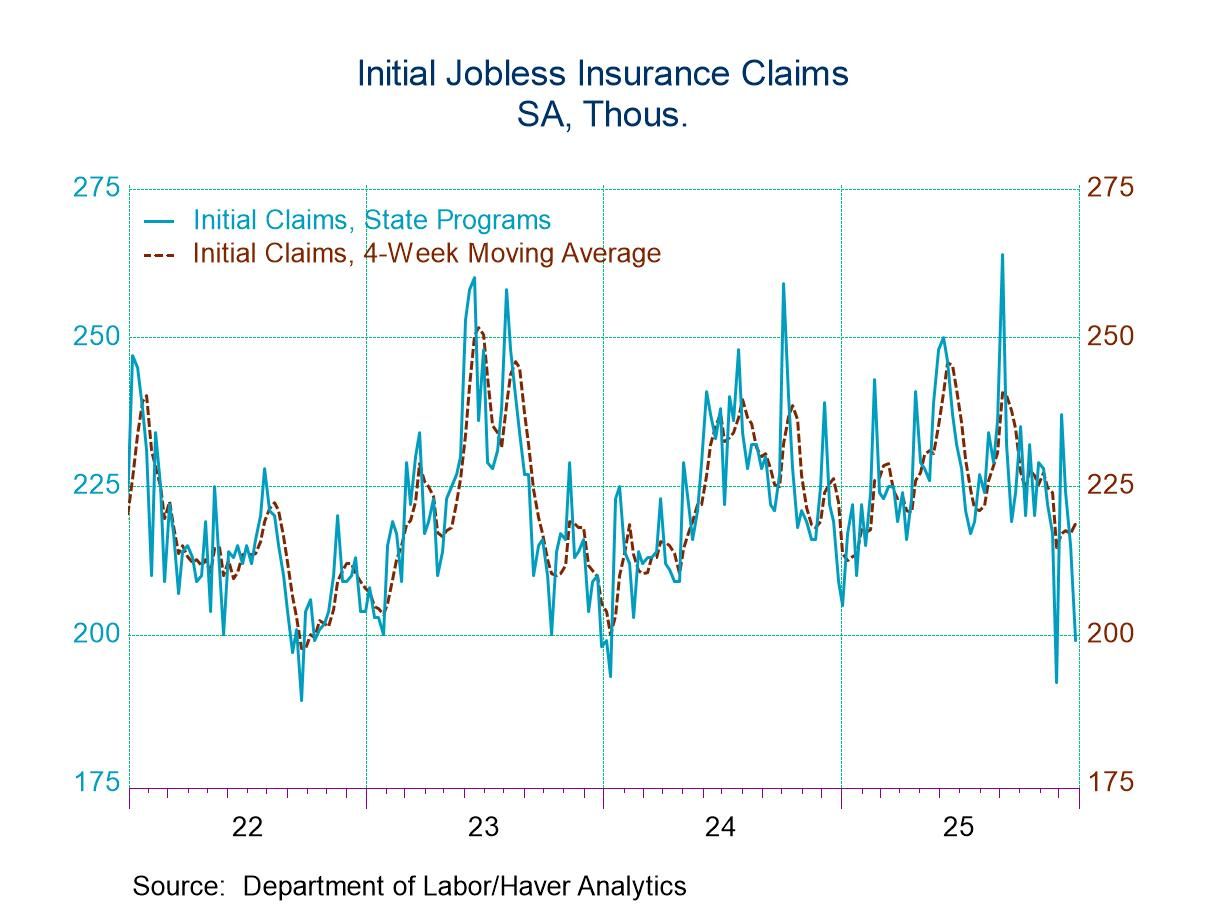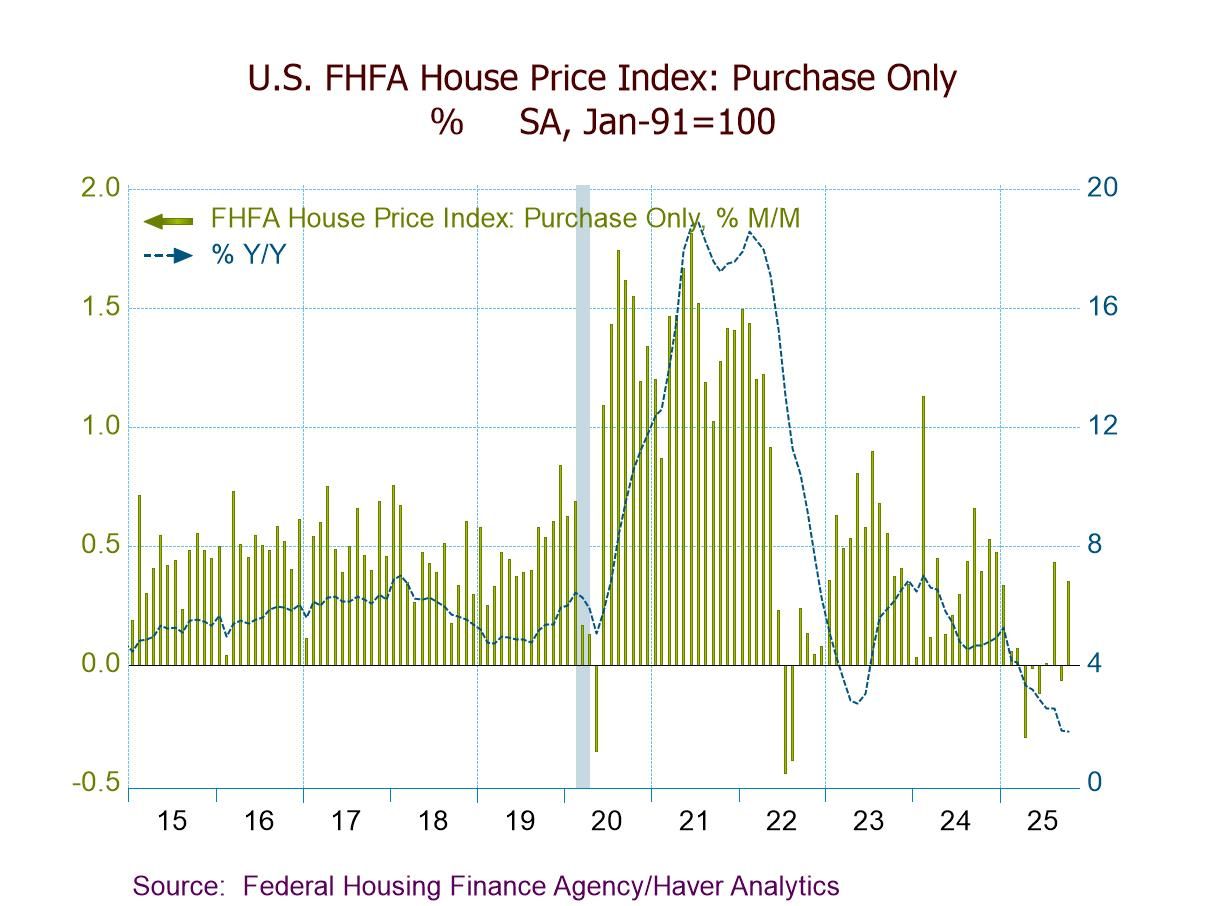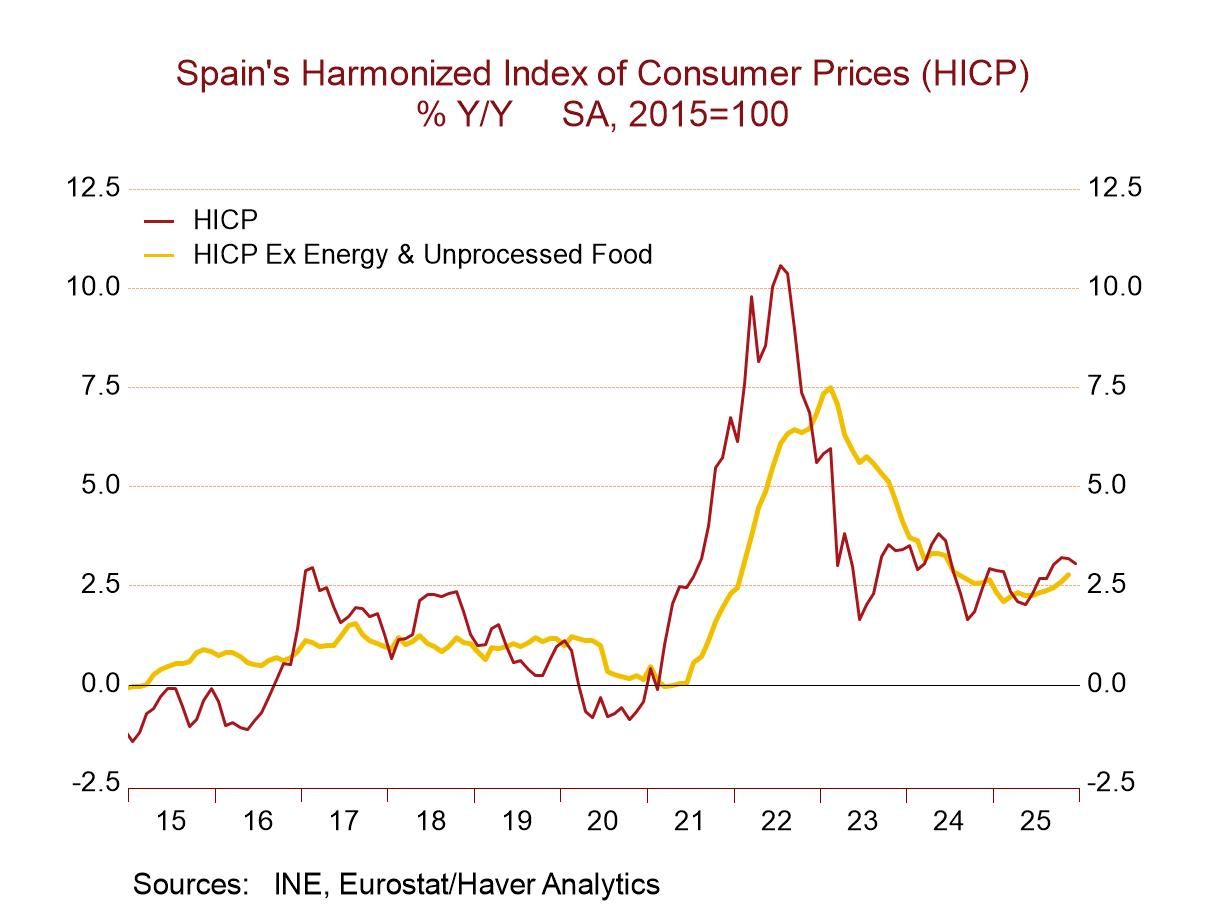 Global| May 10 2013
Global| May 10 2013U.S. Budget Improves Meaningfully
by:Tom Moeller
|in:Economy in Brief
Summary
The Federal Government ran a budget surplus during April of FY'13 of $112.9B, twice the surplus during April of last year. The figure slightly exceeded consensus expectations for a surplus of $95.0B. So far this fiscal year the [...]
The Federal Government ran a budget surplus during April of FY'13 of $112.9B, twice the surplus during April of last year. The figure slightly exceeded consensus expectations for a surplus of $95.0B. So far this fiscal year the deficit has totaled $487.6B, down from $720.0B during the first seven months of FY'12.
The economy's improvement helped net revenues lead the deficit shrinkage with a strong 15.9% rise this fiscal year versus last. That's been driven by a 20.0% y/y gain in individual income taxes and a 21.4% y/y rise in corporate income tax payments. Social insurance payments jumped an accelerated 10.6% y/y while excise taxes grew 8.4% y/y.
The 0.6% y/y year-to-date decline in outlays was paced by a 4.9% decline in defense expenditures. Medicare payments rose 11.7% y/y and veterans benefits grew 11.5%. Social security benefits rose 5.5% this fiscal year versus last but income security outlays were roughly unchanged y/y with the lower unemployment rate. The gain in health outlays also was a moderate 3.5% y/y.
Haver's basic data on Federal Government outlays and receipts, and summary presentations of the Budget from both OMB and CBO are contained in USECON. Considerable detail is given in the separate GOVFIN database.
Monitoring the Financial System is the title of today's speech by Federal Reserve Chairman Ben S. Bernanke and it can be found here.
| US Government Finance | Apr | FY'12 | FY'11 | FY'10 | FY'09 | |
|---|---|---|---|---|---|---|
| Budget Balance | -- | $112.9B | $-1,089B | $-1,298.7B | $-1,294.2B | $-1,415.7B |
| As a percent of GDP | -- | -- | 7.0 | 8.6 | 8.0 | 9.5 |
| % of Total | YTD FY'13 | |||||
| Net Revenues (Y/Y % Change) | 100 | 15.9% | 6.4% | 6.5% | 2.7% | -16.6% |
| Individual Income Taxes | 47 | 20.0 | 3.7 | 21.5 | -1.8 | -20.1 |
| Corporate Income Taxes | 8 | 21.4 | 33.8 | -5.4 | 38.5 | -54.6 |
| Social Insurance Taxes | 36 | 10.6 | 3.2 | -5.3 | -2.9 | -1.0 |
| Excise Taxes | 3 | 8.4 | 9.2 | 8.2 | 7.1 | -7.2 |
| Net Outlays (Y/Y % Change) | 100 | -0.6 | -1.7 | 4.1 | -1.8 | 18.2 |
| National Defense | 20 | -4.9 | -3.6 | 1.7 | 4.6 | 7.6 |
| Health | 10 | 3.5 | -7.0 | 1.0 | 10.4 | 19.1 |
| Medicare | 20 | 11.7 | -2.8 | 7.5 | 5.0 | 10.1 |
| Income Security | 17 | 0.3 | -9.2 | -4.1 | 16.7 | 24.9 |
| Social Security | 20 | 5.5 | 5.8 | 3.4 | 3.5 | 10.7 |
| Veterans Benefits | 4 | 11.5 | -2.0 | 17.3 | 13.6 | 12.7 |
| Interest | 6 | 1.4 | -2.1 | 15.8 | 2.9 | -24.6 |
Tom Moeller
AuthorMore in Author Profile »Prior to joining Haver Analytics in 2000, Mr. Moeller worked as the Economist at Chancellor Capital Management from 1985 to 1999. There, he developed comprehensive economic forecasts and interpreted economic data for equity and fixed income portfolio managers. Also at Chancellor, Mr. Moeller worked as an equity analyst and was responsible for researching and rating companies in the economically sensitive automobile and housing industries for investment in Chancellor’s equity portfolio. Prior to joining Chancellor, Mr. Moeller was an Economist at Citibank from 1979 to 1984. He also analyzed pricing behavior in the metals industry for the Council on Wage and Price Stability in Washington, D.C. In 1999, Mr. Moeller received the award for most accurate forecast from the Forecasters' Club of New York. From 1990 to 1992 he was President of the New York Association for Business Economists. Mr. Moeller earned an M.B.A. in Finance from Fordham University, where he graduated in 1987. He holds a Bachelor of Arts in Economics from George Washington University.


